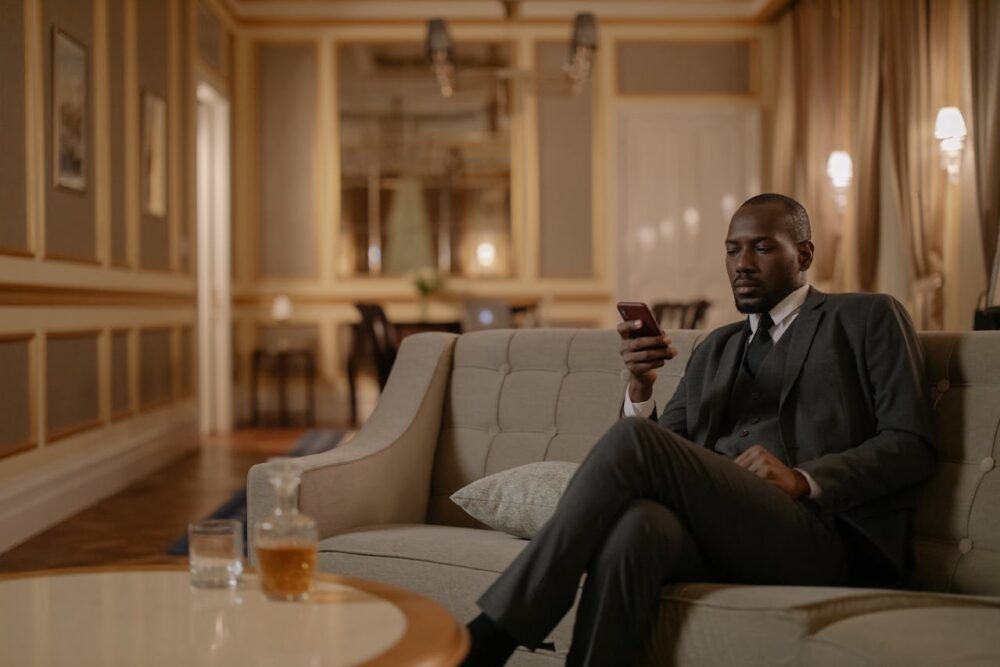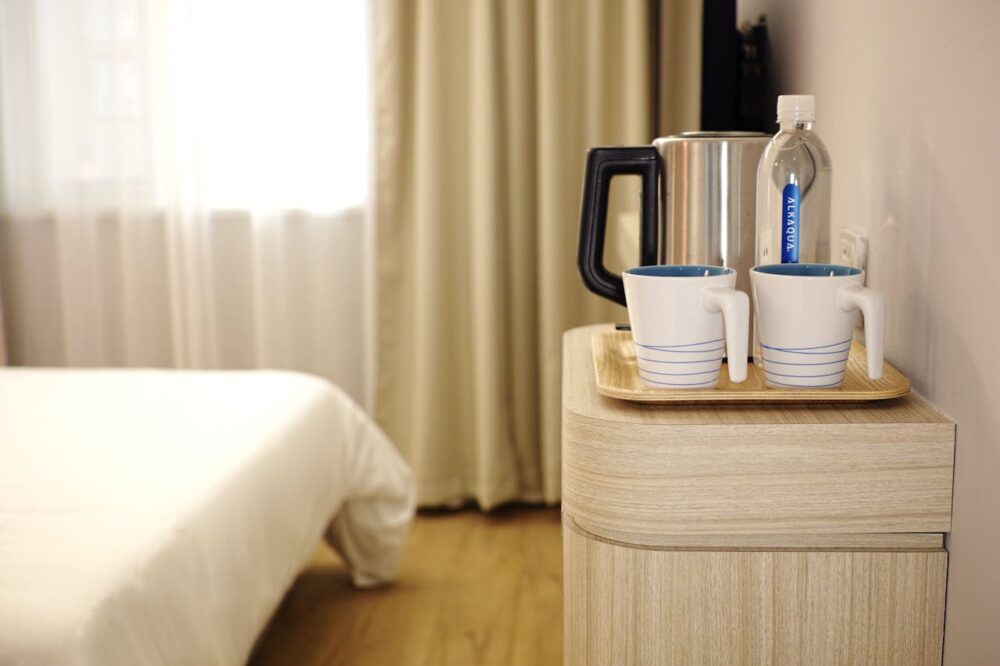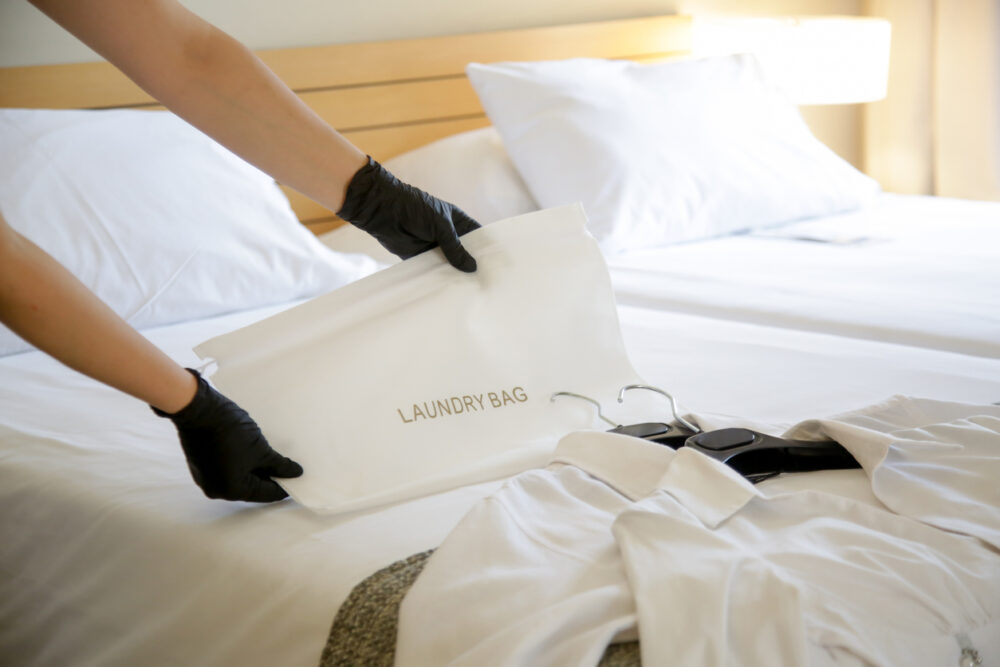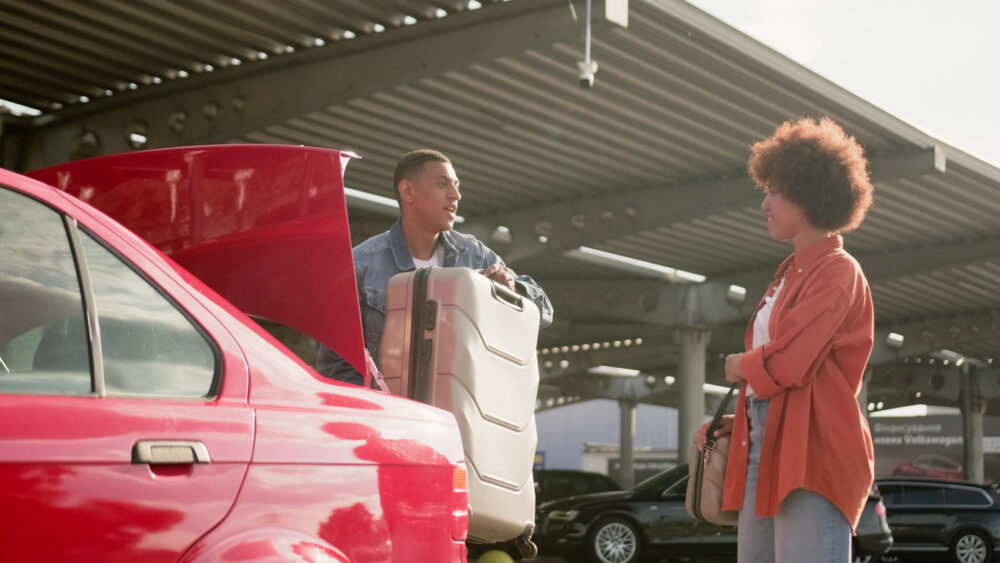These small conveniences seem harmless in the moment but can quietly inflate your bill more than you expect.

Hotels are designed to make you comfortable, but many also rely on subtle extras that entice guests to spend without thinking twice. From drinks in the minibar to fees tucked into your room service receipt, these small temptations add up fast. What looks like a minor indulgence often becomes a surprise when the final bill arrives.
Understanding where these costs hide can help you stay in control of your budget. By spotting common traps ahead of time, you’ll be able to enjoy your stay without overspending. Smart choices not only keep your wallet intact but also make your travel planning more predictable and less stressful.
1. Minibar snacks come with outsized markups.

That small bag of chips or soda in the minibar often costs many times more than it would at a local store. Hotels rely on convenience pricing, banking on your late-night cravings or the appeal of having food within arm’s reach. For everyday travelers, the quick fix can easily add $20 or more to a bill without realizing it, as mentioned in Insight Vacations. A practical solution is to skip the minibar altogether and stock up at a nearby grocery or convenience store. Treat it as off-limits unless you’re ready for the premium charge.
2. In-room bottled water isn’t always complimentary.

Many hotels place bottles of water on the desk or nightstand, and without clear labeling, it’s easy to assume they’re free. In reality, they may be part of the minibar or charged per bottle at a steep rate. Guests often learn this only after seeing the bill. To avoid the trap, check for signs or call the front desk before opening, according to TravelPulse. Bringing your own refillable bottle and using lobby dispensers or filtered stations ensures hydration without unnecessary cost.
3. Room service adds fees beyond the menu price.

Ordering a meal to your room feels indulgent, but the real price includes delivery fees, service charges, and automatic gratuities. What looked like a $15 entrée might end up costing twice that after extras. For middle-budget travelers, this makes room service a pricey convenience. The best tip is to review the full breakdown of charges before placing an order, as reported by Condé Nast Traveler. Sometimes walking to the hotel restaurant or ordering from a nearby eatery saves money while offering the same food quality.
4. Laundry service charges premium rates per item.

Hotels often charge per shirt, pair of pants, or even socks for laundry services. While convenient, the cost per load can rival buying new clothing. For travelers on longer stays, this quickly adds up. A better approach is to use nearby laundromats or pack lightweight clothing that can be washed in the sink and air-dried. Portable detergent sheets or small travel bottles make self-care simple and cost-effective. Save hotel laundry service for emergencies when convenience outweighs the expense.
5. On-demand movies and TV rentals are rarely worth it.

Many hotel rooms still offer pay-per-view entertainment, often priced well above what streaming services or downloads cost at home. The temptation comes from the ease of watching something new without setting up devices. However, a single movie can rival the price of a monthly subscription elsewhere. Travelers can avoid this by downloading shows or movies before the trip, or by using portable streaming devices. Enjoying your own library helps you relax without the inflated price tag at checkout.
6. Parking fees hide behind convenience.

Hotels in busy cities often charge daily parking rates that can significantly exceed public garages nearby. While convenient, the cost of valet or on-site parking can quietly double your lodging budget. Before you arrive, compare hotel parking against alternatives in the area. Sometimes walking a block or two from a public lot is worth the savings. If you don’t need a car for your stay, consider ridesharing or public transportation to cut costs entirely.
7. Gym or spa “access fees” may be mandatory.

Some hotels bundle wellness amenities into daily charges, even if you never set foot in the gym or spa. These access fees often appear as part of a resort charge, making it hard to decline. For travelers, this feels like paying for luxuries you didn’t use. A smart move is to ask upfront what’s included in your room rate and whether certain fees are optional. If fitness is important, check for nearby gyms or outdoor walking paths as no-cost alternatives.
8. Business center printing and computer use can be costly.

Hotels frequently charge per page for printing or internet use in business centers. While the amounts seem minor, a few documents can cost far more than expected. With most travelers carrying laptops or smartphones, these charges are less necessary but still easy to fall into. A simple way to avoid the trap is to bring digital copies of tickets, confirmations, and IDs. If printing is unavoidable, ask the front desk if they can make a few complimentary copies.
9. Breakfast buffets aren’t always a bargain.

A hotel breakfast can feel like a convenient way to start the day, but the price often doesn’t match what you get—especially for families. Charging per person adds up quickly, sometimes surpassing the cost of eating at a nearby café. To stretch your budget, check whether breakfast is included in the room rate before booking. If not, compare the cost to outside options. For light eaters, grabbing coffee and a pastry outside may be far more reasonable.
10. Phone calls from the room carry surprising charges.

Even in the age of smartphones, some travelers use the hotel phone for local or long-distance calls. These often come with fees per minute that feel outdated yet remain active. For unsuspecting guests, this leads to unnecessary additions at checkout. The easy solution is to use your own phone with Wi-Fi calling when possible. Confirm rates before dialing if you must use the room phone. Treat it as a last resort rather than a first option.
